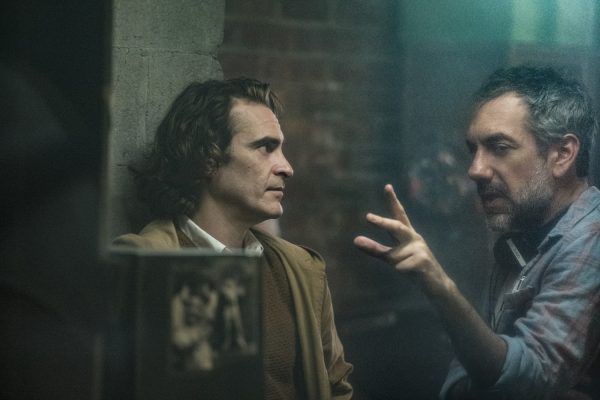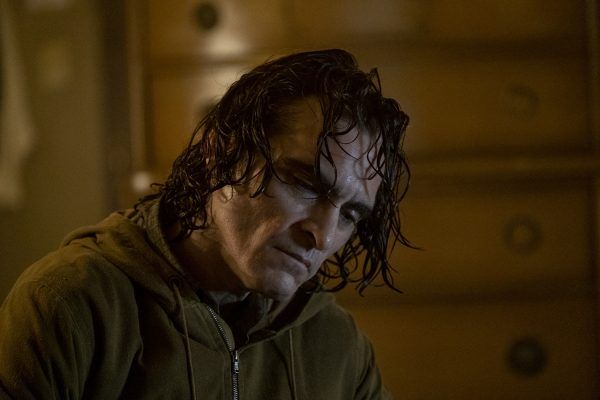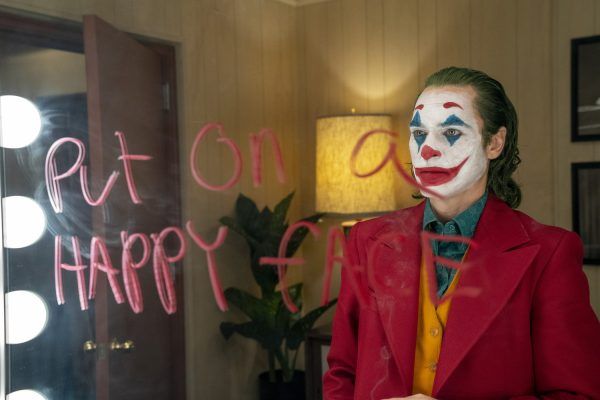Say what you will about Joker, but it’s certainly unlike anything Warner Bros. has made in its current iteration of the DC Universe. While Batman v Superman: Dawn of Justice is gritty and Suicide Squad reimagines the Joker character in a, uh, different way, neither of those films come close to the specific vision or, frankly, unsettling grit and grime of director Todd Phillips’ origin tale. Of course they couldn’t, because they were operating under very different parameters. While WB was previously focused on building out the DC Extended Universe as a franchise that could rival the Marvel Cinematic Universe, Joker is wholly unconcerned with sequels, canon, or cohesively connecting to any other movie. And by diverting from the traditional road, Joker ends up charting a uniquely successful path down which DC Films can finally stand alone.
Joker originated with a unique idea that came at just the right time. In 2016, Warner Bros. was releasing what it hoped would be its defining film of the “DC Extended Universe”: Batman v Superman: Dawn of Justice. While director Zack Snyder’s Superman reboot Man of Steel served as a test balloon of sorts to see if the “gritty reboot” formula of Batman Begins could be translated to other DC heroes, Batman v Superman was the first new DC film created with further movies and a cohesive universe in mind. It introduced Gal Gadot’s Wonder Woman, Ben Affleck’s Batman, and Ezra Miller’s The Flash while also planting story seeds that Snyder hoped to pay off in future sequels—like his planned two-part Justice League adaptation.
Warner Bros. was so bullish on Batman v Superman that they already had Snyder directing the first Justice League movie, with filming on that superhero team-up set to begin just three weeks after Batman v Superman hit theaters. In a shock to the studio, however, critics and audiences were taken aback by the profound joylessness that permeated the first live-action onscreen pairing of the two most popular superheroes in history. This was by design, mind you—Snyder wanted to make a dark and deadly serious movie—but all involved figured audiences would spark to this as a contrast to the bright and colorful Avengers movies over at Marvel Studios.
As it turns out, they didn’t. Batman v Superman’s box office plummeted nearly 70% in its second weekend, and the film ended up underperforming as a whole ($873.6 million worldwide is nothing to scoff at, but WB expected $1 billion at least). Almost immediately, the studio began attempting to retool the about-to-start-filming Justice League and the already-wrapped Suicide Squad, twisting and morphing these gritty, grounded superhero films into Frankenstein’d lively affairs.
This context is necessary because it was in the midst of this uncertainty at Warner Bros. that Todd Phillips first approached the studio about Joker. His idea? Create a singular, standalone origin story movie about the iconic DC Comics villain that would be more in the vein of Taxi Driver than Iron Man. No sequel potential and no franchise connections, and an R-rating—all of which were intended to create an abundant amount of creative freedom.
The studio was understandably apprehensive at first, but began to warm to the idea as they realized their DCEU was not going to be launching as swimmingly as they’d hoped. Names like Leonardo DiCaprio and Martin Scorsese were linked to the film, and an air of prestige surrounded the project while the studio was simultaneously trying to “fix” its other DC movies that had left the station.
Cut to October 2019 and Joker has won the Golden Lion award at the Venice Film Festival and launched to record-breaking box office and Oscar buzz for star Joaquin Phoenix’s tortured performance. Reactions to the film are strong as Phillips did indeed make a disturbing, violent, and purposefully provocative origin story for The Joker. The potentially dangerous ramifications for making a movie about a sad, mentally ill individual who takes violent action so that people will notice him are certainly up for debate, and reviews have cooled a bit since Venice. But I’d argue that regardless of whether you love or hate Joker, it’s a step in the right direction for DC Films.
DC’s biggest competition in the feature film sphere is, of course, Marvel Studios, which not only had a head start with 2008’s Iron Man, but also got its missteps out of the way early and cheaply (here’s lookin’ at you The Incredible Hulk, Iron Man 2, and Thor: The Dark World). But the Marvel Cinematic Universe is also constrained. Filmmakers are given a more limited degree of creative freedom as evidenced by the public disputes between directors like Joss Whedon, Alan Taylor, and Edgar Wright with the studio. That’s not to say interesting movies like Black Panther and Thor: Ragnarok can’t be made, but under the “rules” of the MCU, Marvel would never allow, say, Quentin Tarantino to come in and create a one-off riff on Black Widow. But DC could welcome the Once Upon a Time…in Hollywood director with open arms.
Indeed, the public implosion of the DCEU may have been the best thing to happen to Warner Bros. It took a few years and one Wonder Woman for the studio to realize that the less “connected” its films were to each other, the greater the possibility. The studio tried (and failed) to salvage Justice League, and then moved on, opting to focus on making one movie at a time rather than trying to rush towards some Avengers-style team-up. Films like Aquaman and Shazam! still leave the door open for their characters to mingle with others from the DC Universe, but they’re also not incredibly concerned with laying down those connections.
And then there’s Joker, which shows that Warner Bros is unafraid to let a director with a specific vision and a tremendous acting talent come in and put their own stamp on a famous character. Phillips’ film doesn’t attempt to explain why Phoenix is now playing The Joker instead of Jared Leto, nor does it try and find some harebrained backdoor into the DCEU. It just tells its story the way Phillips intended (for better or worse). Could there be a sequel? Maybe. But unlike almost every other major piece of IP in Hollywood, that’s not the primary goal here.
That’s something Marvel Studios can’t afford to do (and doesn’t really need to given that it released the biggest movie of all time), and Joker almost serves as an invitation to other filmmakers to come play in the DC sandbox in any way they want, without fear of interconnected franchise strings attached. Imagine Lynne Ramsay or Karyn Kusama being given the freedom to do whatever they want with a character like Robin or Catwoman. Think of Brad Pitt or Denzel Washington or Frances McDormand being lured to a DC movie by the prospect of crafting something wholly unique and completely singular.
Joker was a risk in terms of tone and rating, but not an incredibly expensive one, and it appears to have paid off in spades. While Warner Bros. has other promising DC films in the works now like Cathy Yan’s Birds of Prey or James Gunn’s The Suicide Squad, I’m hopeful that Joker is the beginning of additional bold, ambitious, and standalone takes on iconic characters from unexpected filmmakers and performers.




